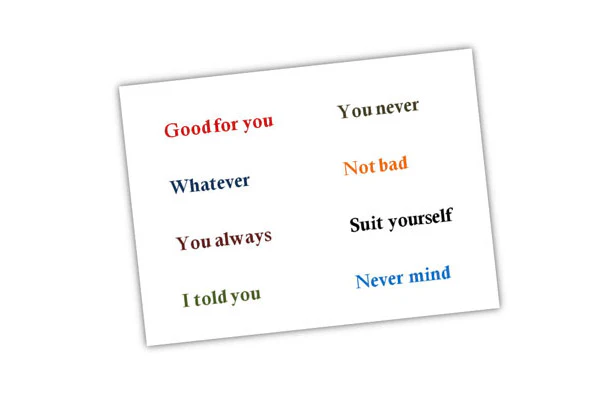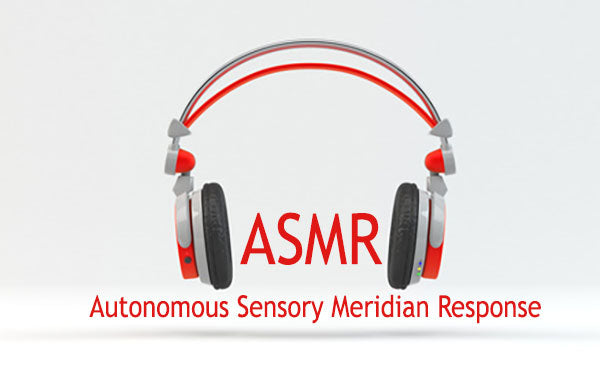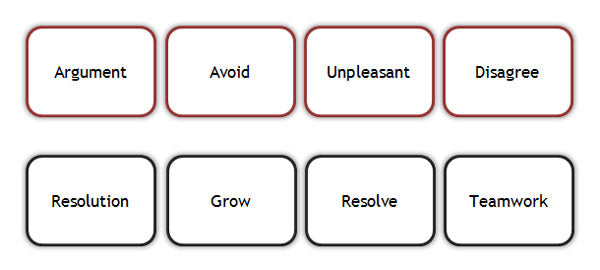Purpose
Forgiveness is a powerful soft skill that can lead to significant personal growth and improved relationships. This multi-part exercise draws on insights from major scholars in psychology and conflict resolution, such as Robert Enright and Everett Worthington, to help delegates navigate the complex process of forgiving others as well as themselves. The exercise is designed to be reflective and healing, with an emphasis on moving past feelings of hurt and revenge towards a state of empathy and release.
Teach About Forgiveness
Robert Enright and Everett Worthington have contributed great insights into the field. Both scholars have significantly impacted our understanding of forgiveness, its psychological foundations, and its role in personal and interpersonal healing. Here are guidelines that encapsulate their ideas:
Understanding Forgiveness
- Define Forgiveness. Enright and colleagues define forgiveness as a willingness to abandon one’s right to resentment, negative judgement, and indifferent behaviour toward one who unjustly injured us, while fostering the undeserved qualities of compassion, generosity, and even love toward him or her. Emphasise that forgiveness is a process and a choice, not a one-time act or a quick fix.
- Distinguish Forgiveness from Forgetting or Condoning. Make it clear that forgiving does not mean forgetting the harm done or condoning unjust actions. Worthington explains forgiveness as releasing feelings of resentment or vengeance; it does not require reconciliation or denying the gravity of the offence.
The Process of Forgiveness
- Enright’s Four Phases Model. Enright's process model of forgiveness involves four phases: Uncovering, Decision, Work, and Deepening. Briefly, these phases guide individuals from acknowledging the hurt and pain, deciding to forgive, doing the work of understanding and compassion, to finding deeper meaning and possibly experiencing personal transformation as a result of the process.
-
Worthington’s REACH Model. Everett Worthington proposes the REACH model of forgiveness, which stands for:
- Recall the hurt
- Empathise with the one who hurt you
- Altruistic gift of forgiveness
- Commit publicly to forgive
- Hold onto forgiveness
This practical approach emphasises empathy and altruism as key components of forgiving others.
Benefits of Forgiveness
- Healing and Personal Growth. Highlight how both scholars discuss the benefits of forgiveness in reducing stress, improving mental health, and leading to greater personal growth. Forgiveness is linked to decreased anxiety, depression, and major psychiatric disorders, as well as improved relationships and physical health.
- Self-Forgiveness. Touch upon the importance of self-forgiveness in personal development. Both Enright and Worthington discuss how self-forgiveness can lead to feelings of peace, self-acceptance, and a decrease in feelings of guilt and shame.
Applying Forgiveness
- Exercises and Reflections. Encourage engagement with exercises that reflect the scholars’ frameworks, such as writing letters of forgiveness (as part of Enright’s model) or using the REACH model as a guide for personal reflection and action.
- Encourage a Personal Journey. Acknowledge that the journey of forgiveness is highly personal and can vary greatly among individuals. Encourage delegates to be patient with themselves and recognise that forgiveness is a process that can take time.
- Promote Empathy and Understanding. Both scholars emphasise the role of empathy in the forgiveness process. Encourage delegates to try to understand the perspective of the person who hurt them, as this can be a powerful step towards forgiveness.
- Community and Support. Highlight the importance of seeking support from others during the forgiveness process, whether through community groups, therapy, or conversations with trusted friends or family members.
Objective
- To guide delegates through the process of identifying grievances and acknowledging their feelings.
- To help delegates understand the importance of forgiveness for their own well-being.
- To offer a structured pathway towards forgiving others and oneself.
What You Need
- A quiet, comfortable space for reflection.
- Writing materials (journal, pen/pencil) for personal reflections.
- Forgiveness letters template (optional).
Setup
- Begin with a brief discussion on what forgiveness means, its benefits, and common misconceptions as shown above. Reference thoughts from scholars like Enright and Worthington on the importance of forgiveness in healing and personal growth.
- Encourage delegates to acknowledge their feelings of hurt, betrayal, or disappointment, understanding that these feelings are a normal part of the process as they go through this exercise.
- Introduce the concept of a “forgiveness letter”, which can be an actual letter written to someone else or a journal entry addressed to oneself. In this exercise, they would get to write this letter based on the following steps. Delegates would work on their own as this is a personal exercise. We will then back together to share and discuss.
Task: Write the Forgiveness Letter
- Reflect. To get started, ask delegates to reflect on a person or situation that has caused hurt or anger. Acknowledge that forgiveness is for their personal peace and not condoning the hurt caused.
- Acknowledgment of Feelings. Ask delegates to write down their feelings related to the event or person. Acknowledge that it is okay to feel hurt, angry, or disappointed.
- Imagining Revenge to Forgiveness. Reflect on the initial statement about needing revenge before forgiveness. Think about what actions or words from the other person would make you feel better. Then, imagine they have done exactly that. Notice how your feelings shift towards forgiveness.
-
Writing the Forgiveness Letter:
- Forgiving Others: Start with, “I need to forgive [Name] and I forgive you for [Specific Action].” Describe how their actions affected you and how you are choosing to forgive them for your peace of mind.
- Self-Forgiveness: Begin with, “I forgive myself for [Action or Thought].” Acknowledge any guilt, shame, or regret, and write about accepting and forgiving yourself.
- Reflection. Ask each delegate to reflect on the process of writing their letters on their own.
- Allocate about 15 minutes for writing the letters.
- Sharing. Bring back everyone together If delegates are comfortable, ask them to share their experiences and insights with the group as a whole. Alternatively, you can also pair them up and get them to share with a partner. Get them to discuss how envisioning forgiveness impacted their feelings and how they might continue to practice forgiveness moving forward.
- Continue with a class discussion.
Timing
Explaining the Exercise: 15 minutes
Activity: Writing the letter 15 min + sharing 15 min = 30 minutes
Group Feedback: 20 to 30 minutes depending on the number of delegates.
Discussion
Ask delegates to share their experiences and reflections if they feel comfortable doing so. Emphasise confidentiality and respect for everyone’s process. Consider discussing the following:
- Discuss the initial feelings of wanting revenge and how these feelings can evolve towards forgiveness. Highlight the transition from feeling the need for revenge to imagining the act of forgiveness.
- Facilitate a conversation about the challenges and benefits of forgiving others as well as the importance of self-forgiveness for personal healing and growth.
- Encourage delegates to think about how they can apply forgiveness in their daily lives, recognising that forgiveness is a process and may require time.
Soft Skills Training Materials
Get downloadable training materials
Online Train the Trainer Course:
Core Skills
Learn How to Become the Best Trainer in Your Field
All Tags
Training Resources for You

Course Design Strategy
Available as paperback and ebook

Free Training Resources
Download a free comprehensive training package including training guidelines, soft skills training activities, assessment forms and useful training resources that you can use to enhance your courses.

Our Comprehensive Guide to Body Language

Train the Trainer Resources
Get Insights - Read Guides and Books - Attend Courses
Training Materials
Get downloadable training materials on: Management Training, Personal Development, Interpersonal Development, Human Resources, and Sales & Marketing














1 comment
CHITRA
I would like to understand more about this program and how I can conduct this program for the public. Thank you.
Leave a comment
All comments are moderated before being published.
This site is protected by hCaptcha and the hCaptcha Privacy Policy and Terms of Service apply.